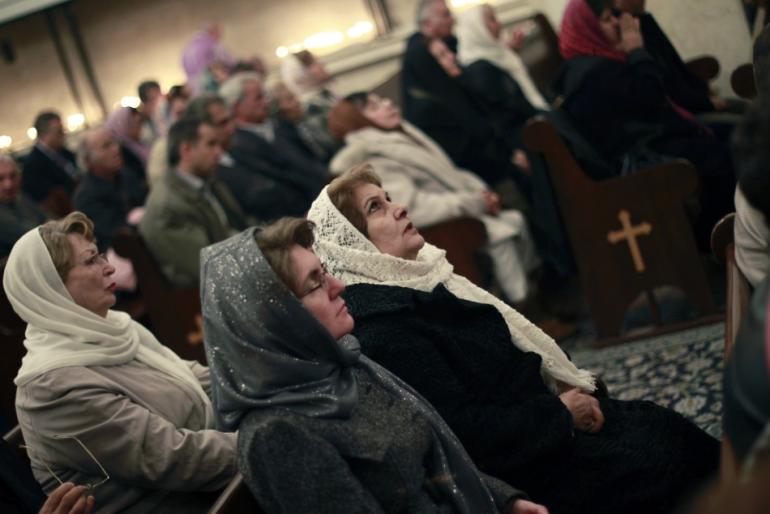
A report released by the United States government has been released for 2015, highlighting religious freedom violations in 33 countries.
According to Thomas D. Williams, Ph.D., of Breitbart, the independent U.S. Commission on International Religious Freedom, or USCIRF, released its annual report on assessing the application of the International Religious Freedom Act, or IRFA. The report has singled out several countries "where particularly severe violations of religious freedom are perpetrated or tolerated."
"It should come as no surprise that in the pages of this report, we have recommended that the United States designate all five of these nations - Iraq, Syria, Nigeria, Central African Republic, and Burma - as 'countries of particular concern,' or CPCs under the International Religious Freedom Act," the Commission wrote. "We are identifying their governments as well as others as either perpetrating or tolerating some of the worse abuses of religious freedom in the world."
In a press release, USCIRF recommended that the State Department add the Central African Republic, Egypt, Iraq, Nigeria, Pakistan, Syria, Tajikistan and Vietnam to the CPCs list. In addition, the Commission suggested placing Burma, China, Eritrea, Iran, North Korea, Saudi Arabia, Sudan, Turkmenistan and Uzbekistan back on the list.
"USCIRF is an independent, bipartisan U.S. federal government commission created by the 1998 International Religious Freedom Act (IRFA) that monitors the universal right to freedom of religion or belief abroad," Williams wrote. "It has resisted attempts of the Obama administration to substitute the language of religious freedom with the more restricted language of 'freedom of worship.'"
According to Tom Strode of Baptist Press, the watchdog panel indicated that with few exceptions, religious liberty around the world was retreating. USCIRF Chair Katrina Lantos Swett said via telephone news conference that there was "little evidence that religious freedom conditions have improved in any serious or tangible way."
"When we look at the 16 countries we recommended last year for CPC status, not one of them has significantly improved its record," Swett said. "And in a number of them, from China to Syria, we see signs of further deterioration."
However, Sweet mentioned that "non-state actors" such as ISIS and Boko Haram have "played a huge role in fueling some of the worst humanitarian crises of our time." Strode reported that 2 million people, including Christians, Yazidis and moderate Muslims, were displaced in Iraq thanks to the rise of ISIS in 2014.
"In a first for the commission, its report recommended the U.S. government call on the United Nations Security Council to refer ISIS to the International Criminal Court for prosecution," Strode wrote.
According to Strode, the report recommended adding the Central African Republic to the list because "nearly all the country's mosques have been destroyed" in fighting between Christians and Muslims there. Burma was also considered a candidate for the list thanks to violence by Buddhist extremists, which has displaced 140,000 Rohingya Muslims and at least 100,000 Kachin Christians.
"USCIRF's report urged the United States and other countries to take the following steps to aid countries afflicted by religious extremism: 1) continue to provide emergency help; 2) give full recognition to religious liberty; and 3) provide legal protections to both the majority and minorities and address corruption and 'unequal sharing' of resources," Strode wrote.
In her view, Swett thought that "there is enormous sensitivity in our government to the threats facing persecuted Christian communities." However, she also argued that religious freedom should be considered in U.S. foreign policy.
"Standing for religious freedom is not just a moral imperative but a practical necessity for any country seeking to protect its security and that of its citizens. That includes America," Swett said. "Clearly, religious freedom deserves a permanent seat at the table of our country's foreign policy."
















